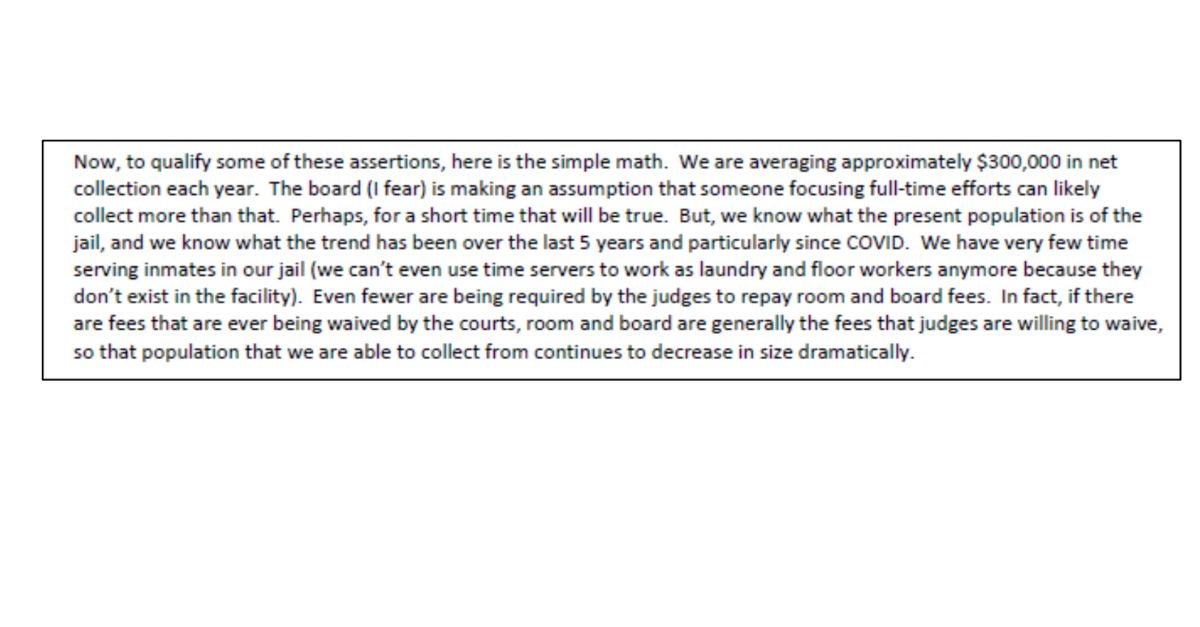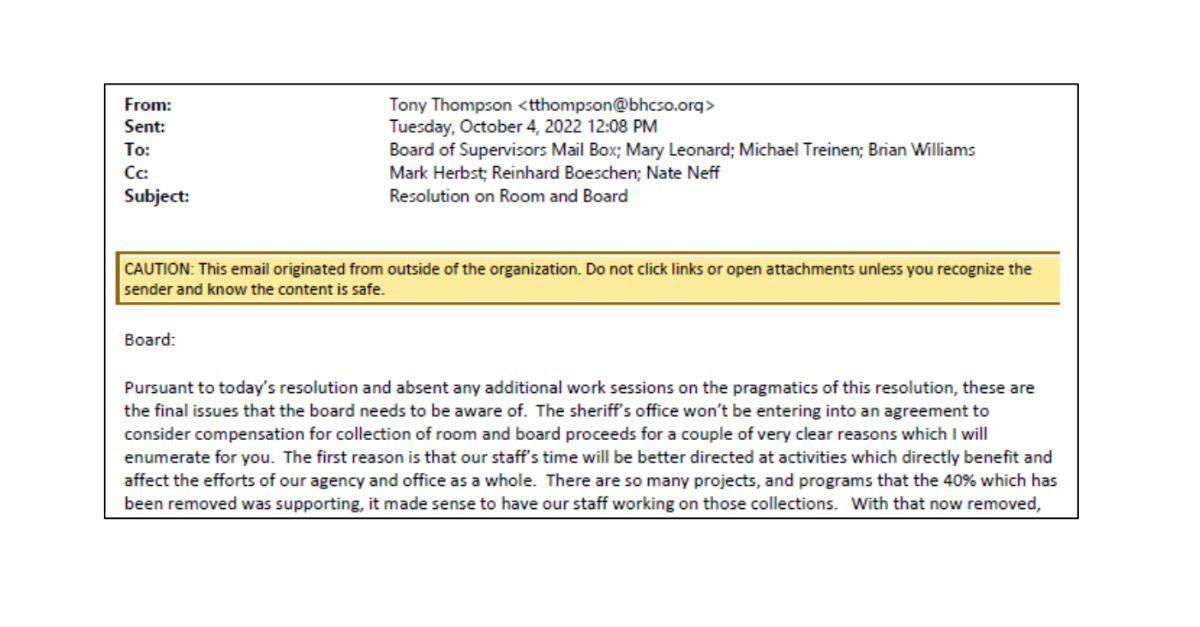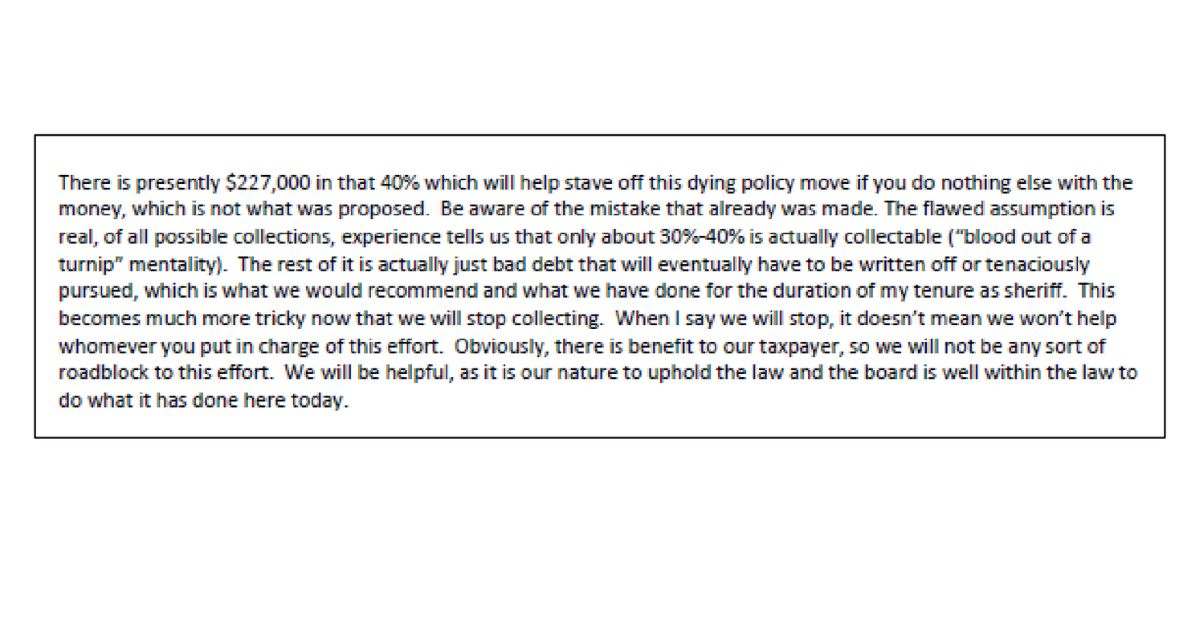
Left: Leticia Roberts (photo via ACLU of Iowa/Alesha Fox). Right: Black Hawk County Sheriff Tony Thompson (Screengrab via KWWL).
An Iowa woman filed a civil rights lawsuit Monday against a local sheriff over his aggressive policies to get “blood out of a turnip” by allegedly forcing low-income individuals to pay exorbitant jail fees that were then used to fund a gun range stocked with cotton candy and ice cream.
Leticia Roberts served a total of nine days in county jail in 2022 for operating a motor vehicle while intoxicated. After Roberts was released, she received an invoice for $730 for the time she was detained at the Black Hawk County Jail.
Roberts is a single mom of three who says the $730 bill is a massive debt for her that she still struggles to pay more than two years later.
The ACLU of Iowa filed a class-action lawsuit on Roberts’ behalf in U.S. District Court for the Northern District of Iowa. The filing names Black Hawk County Sheriff Tony Thompson and Black Hawk County as defendants.
“As a regular citizen, and being involved within the community, it makes me upset because a sheriff’s office is supposed to uphold the law, not bend it,” Roberts said in a statement. “As a mom, it makes me upset because that is money that could be going towards feeding my children. But instead it was put towards things such as cotton candy and ice cream machines for ‘fun.””
Under Iowa law, county sheriffs have the right to collect “jail fees” from released inmates through the process of a civil “reimbursement claim.” Tony Thompson, the elected sheriff of Black Hawk County, Iowa, developed a jail fee system for the county whereby inmates must repay the county $25 for booking fees and $70 per day of incarceration for “room and board charges.” The fees are collected periodically after inmates sign a confession of judgment form on their release. Inmates are required to sign the confession of judgment forms in order to have their possessions returned as they exit the jail, and the forms are neither notarized nor signed in the presence of counsel.
According to the lawsuit, the system results in hundreds of thousands of dollars in income to the county each year, all “without any process whatsoever and without a judge reviewing the claims,” and even without individuals consulting with their attorneys.
Iowa state law dictates that 60% of the funds collected for jail fees are to be used for courthouse and jail infrastructure or medical expenses. However, the remaining 40% is distributed by a county Board of Supervisors. The lawsuit alleges that in Black Hawk County, at Thompson’s urging, the funds were used for recreation at a shooting range, including “a cotton candy machine, an ice cream machine and laser tag.”
Roberts’ lawsuit takes aim not only at the use of the funds collected, but also at the method the department uses to obtain the funds — confessions of judgment. Roberts and the ACLU argued that having inmates sign documents promising to pay jail fees essentially circumvents a courtroom process during which judges are often willing to waive jail fees.
“The Department’s use of confessions of judgment ensures that no judge ever reviews the reimbursement claims,” the complaint asserts.
Thompson knew that the department would be more likely to collect jail fees when those fees are collected via confessions of judgment, said the plaintiff, who included Thompson’s own words to show the sheriff’s intent.

image via court documents.
The filing included an email from Thompson to the Board of Supervisors in which the sheriff acknowledged, “if there are fees that are ever being waived by the courts, room and board are generally the fees that judges are willing to waive, so that population that we are able to collect from continues to decrease in size dramatically.”
The filing alleges that $590,217.36 in jail fees were collected by the county from July 10, 2021 to July 10, 2023.
Moreover, the complaint says, the Raymond Range shooting facility is “is a source of pride” for the sheriff, who has hosted events for employees and their families at the range. According to the lawsuit, Thompson “tenaciously pursued” the collection of jail fees, for the purpose of gaining the maximum amount of funds.
The lawsuit also calls attention to correspondence between Thompson and the Board of Supervisors over the use of the unrestricted jail fees typically placed in the “40% fund.”
At October 2022 meeting, the Board passed a resolution that placed all jail fees in the County’s general fund, to be spent only as approved by the Board. After the meeting, Thompson emailed the Board and said the department would no longer collect jail fees at all, and would instead focus on “activities which directly benefit and affect” the department itself. Roberts’ complaint included a copy of the email.

Image via court documents.
The plaintiff also pointed out that Thompson was quite public about the importance of aggressively pursuing jail fees from people who often are unable to pay. In the same email to the Board, Thompson explained that most jail fees go uncollected.
“[E]xperience tells us that only about 30%-40% is actually collectible,” Thompson lamented to the Board, then characterized the reality as “‘blood out of a turnip’ mentality.”

via court filing
Roberts’ lawsuit raises multiple civil rights claims for due process violations and unlawful confessions of judgment. Roberts and the class of plaintiffs are requesting monetary damages and a court order to discontinue the jail fee program.
“The sheriff’s department has imposed a high cost that should never be charged in the first place,” said Charles Moore, staff attorney for Public Justice’s Debtors’ Prison Project, in a statement. “And the sheriff’s program has been incredibly profitable, pocketing roughly $300,000 a year by collecting these fees.”
“Most of the people paying are trying to get their lives together and under extreme financial stress, so wrongfully extracting money from them at that difficult point is particularly heartless,” Moore continued.
“This practice needs to stop,” Rita Bettis Austen, ACLU of Iowa legal director said in a statement. “The sheriff is getting people to sign away money they don’t have and give up rights they shouldn’t give up by asking them to do so when they have completed their sentence but before they are released from jail, when they are not yet free.”
“In those circumstances, they have no bargaining power, no attorney, and zero meaningful understanding of what they are doing and what they are giving up,” Bettis Austen said about the people being made to pay exorbitant jail fees.
“I take full accountability for the mistakes I have made along the way in life,” Roberts said in the ACLU statement. “And also why I am working on being the best version of myself as a mother and God-fearing woman to make my and my three amazing children’s lives better. However, that does not give the sheriff’s office an excuse to wrongly take money from me or anyone else.”
Thompson provided a statement to Law&Crime via email Wednesday stating that he would “gladly, openly and transparently” release information about the use of jail fees in Black Hawk County.
Thompson said in a statement emailed to Law&Crime that after a 2020 change in Iowa state law, jail fee charges could no longer be assessed to an inmate’s underlying criminal case and instead must be filed as a separate civil action.
“When inmates are released from the Black Hawk County Jail, they receive a statement as to what is owed and are given the option of signing a confession of judgment and, if desired, entering into a payment plan for all or a portion of outstanding administrative costs and room and board. Inmates are not required to sign confessions of judgment, enter into payment plans, or to agree to the amount owed for administrative costs or room and board fees,” explained Thompson about the process.
As for the use of funds, Thompson said that in his discretion, “some of the nominal expenditures” stemming from jail fee collections were spent, “promoting days where officers can spend time with their families and the community, dispelling myths about the office, ensuring better education of the public, and better informing their families of how to maintain their own safety.”
Thompson said the department finds such days to be “fulfilling, rewarding, and important to the total wellness and investment in a more inclusive, forthright and selflessly serving staff.”
Thompson noted that the public was included in “some of these days” in an effort to “create dialogue and relationships and build commonality amongst neighbors and foundationally establish reliability in our agency without stigma, and without any drama.”
“It seems ironic that the ACLU would call this practice into question when these are the very actions and the law enforcement model that they have been demanding since George Floyd, Michael Brown, Breonna Taylor, and beyond,” Thompson commented about Roberts’ lawsuit. “Further, it also seems disingenuous to have these very programs be paid for by the hard-working taxpayers when they are the ones who are already victimized by the offender.”
Thompson said that when inmates pay jail fees, “they are helping fund training for the law enforcement profession, families, and our communities by providing programming that destigmatizes the profession of law enforcement just a bit,” and said that, “better trained, healthier, emotionally sound officers are a benefit to all citizens, public and inmate alike.”
You can read the full complaint here.
Have a tip we should know? [email protected]






